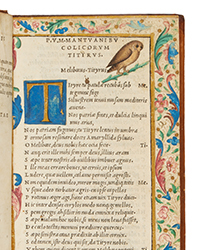Charles Cramer is not a household name, but he was born to an important Russian merchant family in St. Petersburg in 1799. The family firm had trade ties to the Americas, which led to Cramer visiting North America from 1824-28 and again in the 1830s. It was during this later period that Cramer served as Russian Consul in New York. After returning home, he remained in regular contact with American scientists through his position as Secretary of the Imperial Mineralogical Society of St. Petersburg.
While Cramer wrote and collected extensively on his travels, he apparently only published one book during his lifetime, a two-volume account published in 1837-1840 in St. Petersburg in German, Etwas uber die Natur Wunder in Nord America (Something about the Natural Wonders of North America). The second volume is scarce; the first extremely rare. This book features caves, rivers and waterfalls of America. Cramer observed many natural wonders as he visited every one of the United States as of the 1830s excepting Alabama, plus parts of Canada, Mexico, and the Caribbean. The archive includes presentation copies of this book Cramer gave to his father and his wife, including some of his autograph notes, manuscripts, an unpublished continuation, and original drawings by his wife, most of which did not appear in his book.
Along with Cramer's published book are several unpublished manuscript books he created: A General Tour thro' the United States, Scenes in America, Remembrancer of Scenes in Europe, and Scenes in Europe Second Series. The material dates from 1824-1849 (Cramer lived until 1879). What Cramer did was to assemble all sorts of visual material to accompany his narratives. He collected printed views, sketches and other ephemeral items on his journeys to include in his books. As Cummins and Reese note, "No contemporary account of travel in America is so widely illustrated." Cramer would then add his notes to the images he found, which were bound together with his texts. "Seen as a whole," Cummins and Reese continue, "the archive presents an unparalleled resource for how early nineteenth century America presented itself, and was viewed by educated outsiders. In many ways, the Cramer archive provides the visual cognate of observers such as de Tocqueville or Mrs. Trollope."









